40+ Ways to Say “Thank You” in Vietnamese (Comprehensive Guide)
Question: What do you call a cat that knows how to say “Thank you”?
Cat-titude! This is my cat, Vinyasa, aka Vinny.
This is my wife giving me a strange upward left jab to the head. I must have forgotten to say cảm ơn em the night before…
Cô Thuý, my Vietnamese teacher and friend. She helped edit this post. Cảm ơn Cô nhé!
Doing my Vietnamese homework with a view. Learning Vietnamese is a lot like growing rice: it takes patience & dedication. But the end result is nourishing.
Anh rất là biết ơn vợ anh (“I am very grateful for my wife.”).
Table of contents
- The Importance of Expressing Gratitude: How to Say Thank You in Vietnamese
- How to Say Thank You in Vietnamese: Basic Phrases and Pronunciation Guide
- Finding The Pronoun So You Can Say “Thank You” In Vietnamese Correctly
- The Most Common Examples of “Thank You” In Vietnamese Including Pronouns
- How To Add A Personal Touch To Your “Thank You” In Vietnamese
- How to Say Thank You in Vietnamese Based on the Situation
- How To Say “No Thank You” In Vietnamese
- “You’re Welcome” in Vietnamese
- Other Related Words & Expression Of Gratitude
The Importance of Expressing Gratitude: How to Say Thank You in Vietnamese
One could argue that “thank you” is the most important word you should learn when you are just beginning to learn a language. At the very least, you can express your appreciation to others! I believe that being polite is usually a good choice wherever I find myself and whatever language I am learning.
Like many cultures, saying “thank you” is an essential part of daily life in Vietnam. Whether you’re planning to visit Vietnam or interact with a friend in Vietnamese, it’s essential (and useful!) to learn how to say “thank you” properly.
In this comprehensive guide, we’ll cover the basics of how to say “thank you” in Vietnamese, including some pronunciation tips, common scenarios, and cultural norms.
By the end of this article, you’ll have a better understanding of how to show appreciation in Vietnamese and the cultural significance behind these expressions. Hopefully, you’re Vietneamese will improve greatly by the end of this post. And of course, you can thank me later (in Vietnamese), because by the end of this piece, you’ll certainly know how to! 🙂
How to Say Thank You in Vietnamese: Basic Phrases and Pronunciation Guide
The easiest and shortest way to say “thank you” in Vietnamese is cảm ơn. This expression can be used in both formal and informal settings and is appropriate for a wide range of scenarios.
The phonetic spelling for cảm ơn is “kahm uhn.”
Another way to say “thank you” in Vietnamese is xin cảm ơn. This phrase is slightly more formal and polite than cảm ơn and is typically used in business or professional settings. Cảm ơn is widely used in daily life: at cafés, restaurants, hotels, shops, etc. It’s the most common way to say “thank you” when you’re dealing with someone you don’t know and the encounter is transactional.
With friends and family, it’s a bit different. While you could get away with saying cảm ơn to a friend or a family member, it’s actually not the most respectful way to say “thank you”. Why is this? Without including a pronoun, it makes it far less personal.
It took me a while to understand this, but the difference can be best illustrated through a texting example. When someone writes “Thank you, Jeremy,” to me in a message, it lands differently than if they write “thx” or simply send an emoji. Writing it out fully and using my full name just feels more sincere and personal.
Saying cảm ơn to a Vietnamese person that you know well is like texting “thx” or “ty” instead of writing it out. Sure, you’re saying the words, but it can often come across that you don’t actually mean it. If you want to express your appreciation fully, then it’s best to say xin cảm ơn or to include the pronoun.
Vietnamese language and culture has a unique pronoun system. The word “I” and “you” varies greatly depending on who you are talking to. Next, let’s look at the most common pronouns.
Finding The Pronoun So You Can Say “Thank You” In Vietnamese Correctly
Here are the most common pronouns you will come across:
- Tôi – “I, Me” (formal)
- Bạn – “Friend”
- Mình – “Me” (informal)
- Bố/Ba/Cha – “Father”
- Má/Mẹ – “Mother”
- Cháu/Con – “Son/Daughter”, “Grandson/GranddaughterGrandaughter”
- Anh – “Older brother”
- Chị – “Older sister”
- Em – “Younger brother/sister”
- Ông – “Grandfather”
- Bà – “Grandmother”
- Bác/Chú – “Uncle”
- Cô/Dì – “Aunt”
In Vietnamese culture, the use of pronouns is very important as it helps convey respect, hierarchy, and formality in communication. The Vietnamese language has a complex system of pronouns that vary based on the gender, age, social status, and relationship between the speaker and the listener.
When expressing gratitude or saying thank you in Vietnamese, it’s essential to use the appropriate pronoun depending on the person you’re speaking to. Here are some common forms of “thank you” in Vietnamese using different pronouns.
- “Thank you” in Vietnamese to a girl if you are a slightly older male: Cảm ơn em.
- “Thank you” in Vietnamese to a guy that’s slightly older: Em cảm ơn anh (Adding a subjective pronoun, “I thank you”, makes it a little more personal but is not as common).
- “Thank you” in Vietnamese to an entire family: Mình cảm ơn cả gia đình, literally, “I thank all of the family” or mình cảm ơn cả nhà (“I thank the entire household”).
- “Thank you, mom” in Vietnamese: Cảm ơn mẹ (Northern) or cảm ơn má (Southern).
- “Thank you, dad” in Vietnamese: Cảm ơn bố (Northern) or cảm ơn ba (Southern).
- “Thank you” to both parents in Vietnamese: Cảm ơn bố mẹ (Northern) or cảm ơn ba má (Southern).
- “Thank you” to a close friend: Cảm ơn mày (North) / mi (South). Note: Be careful with this one. Only use this with VERY CLOSE friends, otherwise, it is an insult!
- “Thank you” to your older sister or to a woman slightly older than you: Cảm ơn chị.
- “I thank you” to your Grandma (or a very old woman): Con cảm ơn bà.
- “I thank you” to your Grandfather (or a very old man): Con cảm ơn ông.
The Most Common Examples of “Thank You” In Vietnamese Including Pronouns
If you want to say “thank you” to someone who is older or has a higher social status than you, you can use cám ơn ông/bà for “thank you, sir/ma’am.” This pronoun is commonly used to show respect for elders or people in authority, such as teachers, bosses, or government officials.
If you want to say thank you to someone who is the same age or younger than you, you can use cám ơn bạn for “thank you, friend.”
If you want to say thank you to someone who is younger or of a lower social status than you, you can use cảm ơn em for “thank you, younger sibling.” This pronoun is commonly used to show affection and care for younger people or those who are subordinate to you.
Cám ơn em is what I use at cafés and restaurants unless the staff appears to be significantly older than me. But as I get older, this will soon change to cảm ơn con, which means “thank you, child”.
If you want to say thank you to someone who is of the opposite gender, you can use cám ơn anh/chị for “thank you, brother/sister.”
These pronouns are often used in workplaces or formal settings, where people are not familiar with each other, but they want to show respect. More often than not, a taxi driver who is clearly older than me will still refer to me as anh because I am the customer.
Using the correct pronoun is crucial when saying “thank you” in Vietnamese as it reflects the relationship and social status between the speaker and the listener. By using the appropriate pronoun, you can convey your gratitude and show respect for the person you’re speaking to. Vietnamese people will also appreciate your efforts if you can nail the proper pronoun!
That being said, if you forget the proper pronoun, don’t worry! It’s totally acceptable to use the wrong one as Vietnamese people are very forgiving since they know it’s difficult. Also, Vietnamese people are not as easily offended (at least publicly) about their age as people tend to be in the West.
In American culture, people usually get offended if one assumes they are of a greater age than they actually are. In Vietnam, it’s quite the opposite. For example, it would be considered more polite if I were to address an elder woman as cô (“Auntie”) rather than chị (“older sister”).
If you’re not sure, you can always just say xin cảm ơn. which is also fine.
How To Add A Personal Touch To Your “Thank You” In Vietnamese
There’s another word, nha (Southern accent) / nhé (Northern accent) that you can use at the end of the phrase. English doesn’t really have an equivalent for this, but you can think of it as a word of endearment and also politeness.
So, if you haven’t memorized all of the pronouns yet, saying cảm ơn nhé or cảm ơn nha is very acceptable as a non-native speaker. It’s like saying “thank you, dear/darling/uncle/ma’am”. You can also add the nhé or nha after the pronoun:
- Cảm ơn anh nhé : “thank you, older brother”
- Cảm ơn chú nhé : “thank you, uncle”
- Cảm ơn em nhé : “thank you, younger sister/brother”
Though, if you are speaking to the elderly, then you should use the following in order to be more polite:
- Con cảm ơn ông nhé : “thank you, grandfather” or
- Con cảm ơn bà nhé : “thank you grandmother”.
How to Say Thank You in Vietnamese Based on the Situation
Saying “thank you” is just the foundation. Next, let’s look at some common scenarios and the appropriate expressions to use:
- Cảm ơn bạn nhiều – “thank you very much”
[Note: Remember, bạn can be replaced with any of the above pronunciations depending on the situation.] - Cảm ơn rất (là) nhiều – “Thank you very much”
- Xin cảm ơn quý khách. – “Thank you, customer”
- Cảm ơn bạn đã giúp đỡ tôi – ”Thank you for your help”
- Cảm ơn bạn đã dành thời gian cho tôi – “Thank you for your time”
- Cảm ơn bạn vì món quà của bạn – “Thank you for your gift”
- Cảm ơn cả nhà dẫ mời mình – “Thank you for inviting me (for hospitality)”
- Cảm ơn bạn đã ủng hộ mình – “Thank you for your support”
- Cảm ơn bạn đã thông cảm tôi – “Thank you for your understanding/sympthazing”
- Cảm ơn vì đã hiểu (cho) mình – “Thank you for your understanding (of/about me)”
- Cảm ơn bạn vì lòng tốt của bạn – “Thank you for your kindness”
- Cảm ơn bạn vì mọi thứ – “Thank you for everything”
- Cảm ơn bạn vì món quà của bạn – “Thank you for your gift”
- Cảm ơn bạn đã chia sẻ – “Thank you for sharing”
- Cảm ơn bạn đã lắng nghe – “Thank you for listening (deeply)”
Next, let’s look a little closer at some of the phrases above and what situations they may be used in.
Cảm ơn rất (là) nhiều – “Thank you very much”
When you want to express deep gratitude, you can say cảm ơn rất nhiều (pronounced kahm uhn raht nyiew). This phrase means “thank you very much” and is a more formal way of expressing gratitude. You can also include the là, but it’s not required.
Cảm ơn rất (là) nhiều is appropriate for formal situations or when expressing gratitude to someone you don’t know well. It’s also good for the moments where you are feeling especially thankful and you want to express it.
Cảm ơn cả nhà dẫ mời mình – “Thank you for inviting me”
In general, I find Vietnamese people to be very hospitable. It’s not rare that the host will sleep on the floor and give up his/her bed for the guest. Also, they will likely refuse your help in the kitchen and around the house.
The phrase above is more often used in place of “thank you for your hospitality”. If you’ve just finished a delicious meal, you can say: Cảm ơn cả nhà dẫ mời mình. Dồ ăn hôm nay ngon quá! It means: “Thank you to everyone for inviting me. The food today was delicious!”
Cảm ơn bạn đã ủng hộ mình – “Thank you for your support”
If someone has supported you in some way, you can say cảm ơn bạn đã ủng hộ mình (pronounced: kahm uhn bahn dah um hoe minh). This phrase is a great way to express your gratitude when someone has been there for you, offered you encouragement, or helped you achieve something.
Cảm ơn vì đã hiểu (cho) mình – “Thank you for your understanding / Thank you for understanding me
If someone has shown understanding and empathy toward you, you can say cảm ơn vì đã hiểu mình (pronounced: kahm vi dah hiuw min). This phrase means “thank you for your understanding” and is a way to show your appreciation when someone has listened to you, empathized with your feelings or situation, and offered support.
Cảm ơn bạn vì lòng tốt của bạn – “Thank you for your kindness”
If someone has shown you kindness, you can say cảm ơn bạn vì lòng tốt của bạn (pronounced: kahm uhn bahn vee long tote kuwah bahn). This phrase means “thank you for your kindness” and is a great way to express your appreciation when someone has gone out of their way to do something nice for you.
Lòng is a beautiful word that has no direct English equivalent. It describes the compassionate heart that goes out to others and is connected to others. Also, note that the ong in Vietnamese often sounds like an “M” ending in English. To pronounce this well, you will need to puff out your cheeks as well. This can seem silly at first, but it really does the trick!
Cảm ơn bạn vì mọi thứ – “Thank you for everything”
This phrase is a great way to express your deep appreciation for someone who has helped you in many ways. To be honest, I should probably say this to my Vietnamese wife more! 🙂
Cảm ơn bạn vì món quà của bạn – “Thank you for your gift”
Vietnam is certainly a gift-giving culture. If someone has given you a gift, you can say cảm ơn bạn vì món quà của bạn (pronounced: kahm uhn bahn vee mohn kwah koowah bahn). This phrase means “thank you for your gift” and is a great way to show your appreciation for the thought and effort that went into the gift.
Cảm ơn bạn đã chia sẻ – “Thank you for sharing”
This can be used in the context where someone is telling a personal story or revealing something deep about themselves. Or, you can say this to children who simply like to talk a lot. If you heard what they said but have no idea exactly what to respond to because it was a bit all over the place, you can simply say, “thanks for sharing”.
Cảm ơn bạn đã lắng nghe” – “Thank you for listening (deeply)”
This would be an appropriate reply if someone has just listened to your share without interruption and you want to express gratitude for their presence.
How To Say “No Thank You” In Vietnamese
Technically, “no, thank you” is spoken as a literal translation, không, cảm ơn. When I asked my Vietnamese wife about this, she confirmed that this is correct and is often used. However, my direct experience doesn’t exactly line up with this (and no, I swear I’m not just saying this to try to prove her wrong!).
If I offer some food to a Vietnamese person, often they’ll smile and say dạ cảm ơn which is a polite way to say “thank you”. After saying this, they wouldn’t actually take my food or whatever it was I was offering them.
At first, this was a bit confusing to me. If someone offered me something and I said “thanks”, it would mean that I am accepting their gift. However, here it seems that they are saying “thank you” but implying a “no, thank you”.
Basically, it appears that they are thanking me for the offer, but since their body language suggests that they are not accepting the gift, they won’t take it. The rule of thumb that I follow here is that if they say cảm ơn and they don’t lean in or express that they are taking the gift, then it’s their way of saying “no, thank you.”
“You’re Welcome” in Vietnamese
The most common way to say “you’re welcome” in Vietnamese is không có gì which literally translates to “there’s nothing” or “it’s nothing.” This phrase is rather polite and appropriate for most situations.
Other variations of “you’re welcome” in Vietnamese include:
- Không sao – “It’s okay”
- Không sao đâu – “It’s okay”
- Không có gì hết – “It’s nothing at all”
Instead of saying “you’re welcome” Vietnamese people will often say “thank you” in reply to you saying “thank you.” I’ve noticed that workers at a grocery store or restaurant will often say cảm ơn to me after I say cảm ơn nhé. I think this is also common in Western countries as well where both parties say “thank you” to each other after a transaction has been completed.
So, the conversation looks like this at a convenience store or a market.
Me: Cảm ơn chị nhiều (“Thank you, sister, very much”, as I am leaving).
Woman: Cảm ơn! (“Thanks!”)
Other Related Words & Expression Of Gratitude
Strangely enough, there is no Vietnamese word for “please.” If you look online, you may find some translations for “please”, but trust me when I say that no one ever uses them. Why is this?
At first, I found this to be rather strange and I judged it as impolite. However, recently I was introduced to a new idea while reading a book called “Braiding Sweetgrass”. I now believe that “please” isn’t used because “please” is a word that one uses in order to be polite, and politeness is already embedded in Vietnamese language. By using the proper pronouns and sentence structure, you are already showing respect and being polite (mostly to your elders). Thus, the word “please” isn’t necessary.
Anyhow, here are some other related words that are useful to know:
- Biết ơn – “grateful”
- Sự biết ơn – “gratitude”
- Vô ơn – “ungrateful”
- Quý trọng – “to appreciate”
- Trân trọng – “to respect/show consideration for something”
- Quan tâm – “to care about something, to take interest“
- Thông cảm nha – “please, have sympathy”
Thông cảm nha is often used when you are slightly inconveniencing the other person. In English, if I am running late I may say “sorry to keep you waiting” or “thanks for your patience”, or just a simple “sorry.”
In Vietnamese, you could say, anh tới trễ 10 phút, thông cảm nha (“I’m coming ten minutes late, please have sympathy”). Even though the word technically means “sympathy”, the way it is used usually implies some empathy as well.
Here’s another example of thông cảm. During the pandemic, the Vietnamese government would blast announcements through the neighborhood loud speakers twice a day: 5:30 AM & 5:30 PM. As you might imagine, this was not something I enjoyed.
One day, I angrily asked my landlord if she could talk to the local government and see if it was possible to lower the volume of these extremely obnoxious announcements. She explained why the government was doing what they were doing, and ended her response with thông cảm nhé (“please have sympathy”). Funny, because it was actually me who wanted some sympathy!
Truth be told, I did not have much sympathy at the time. But I did learn a new word that day, so I guess I came out ahead. 🙂
Advanced Pronunciation Tip: How To Say “Thank You” Using Southern, Central, & Northern Accents
After living in Vietnam for over 5 years, I am finally grasping the subtle (and not so subtle) differences in each accent.
If you’re interested in the intricacies of pronunciation of the word cảm ơn then you can check out this video I made: How to Pronounce “cảm ơn” (Thank you) in Northern, Southern, & Central Vietnamese Accent
I currently live in Hoi An. Often I’ll use the Central accent, cổm ơn nghe to say “thank you”. When I do, people really appreciate it and often laugh out loud. However, use this one with caution and only with Central speakers! Otherwise, people might look at you like you are crazy.
Conclusion Be Grateful and Express It!
Remember, learning a new language is not just about memorizing vocabulary and grammar rules. It’s about discovering a new culture and way of thinking. In Vietnam, expressing gratitude is an essential part of daily life. Knowing how to say “thank you” in Vietnamese, such as xin cảm ơn, can go a long way in building relationships and showing respect. It’s also likely that you will get rewarded with smiles from native speakers. 🙂
Lastly, did you know that expressing gratitude also has health benefits? Studies have shown that regularly practicing gratitude can boost your mood, reduce stress and anxiety, and even improve your sleep quality. So, saying cảm ơn nhé isn’t just polite; it’s good for your overall well-being!
So, next time someone does something kind for you, big or small, remember to say cảm ơn nhé or xin cảm ơn and show your gratitude. It’s good for both you and the person you’re thanking.
Cảm ơn đã đọc nhé! “Thanks for reading!”

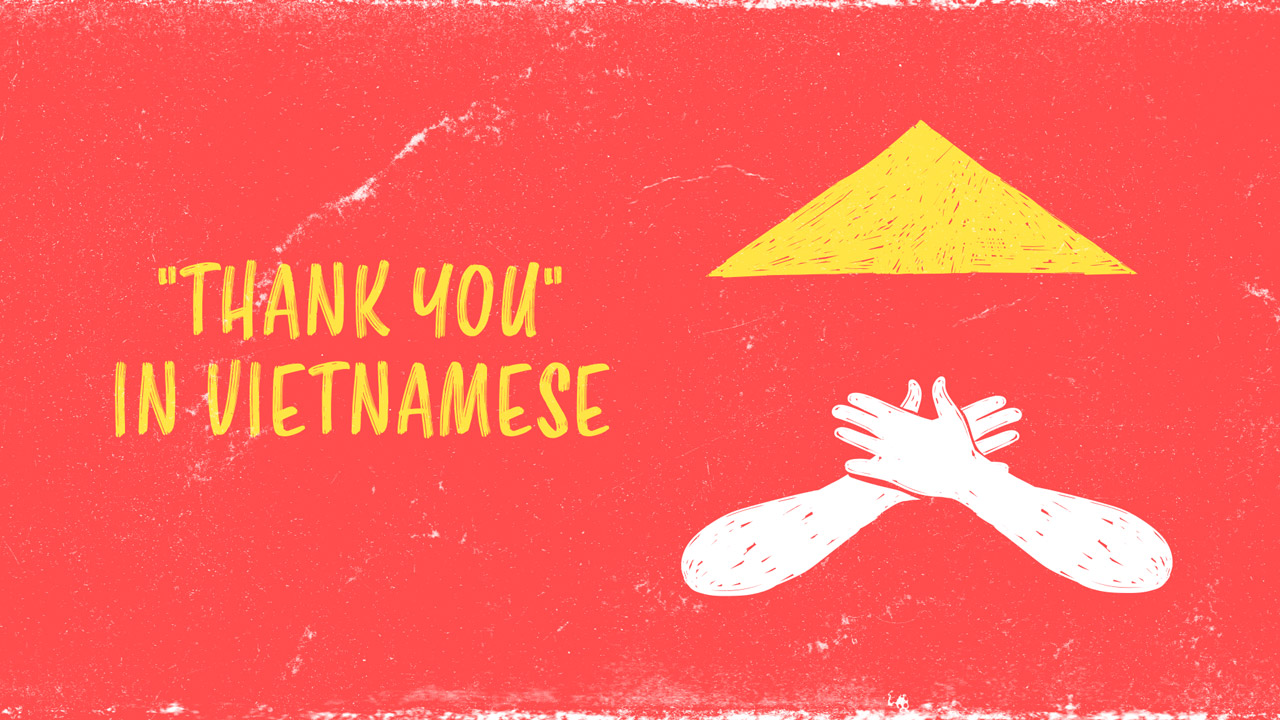
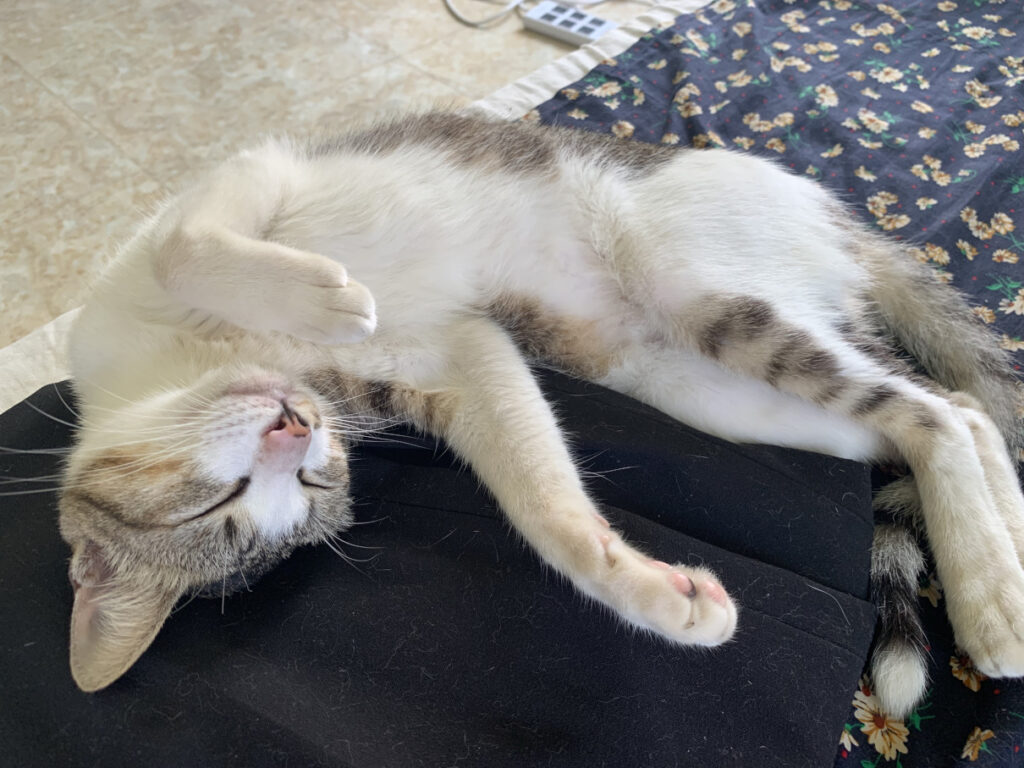
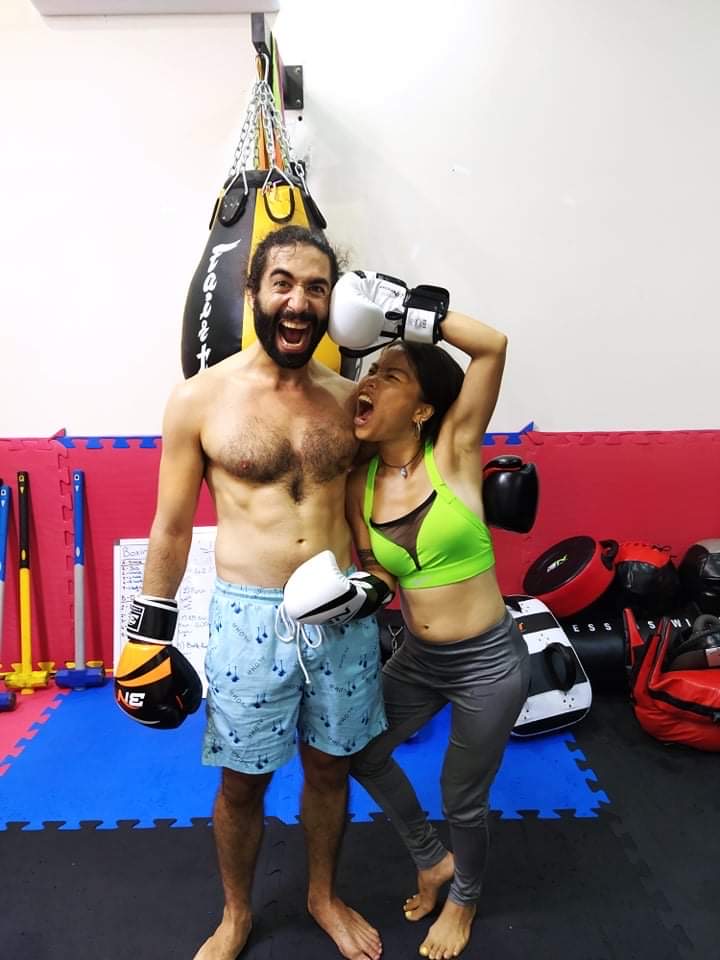
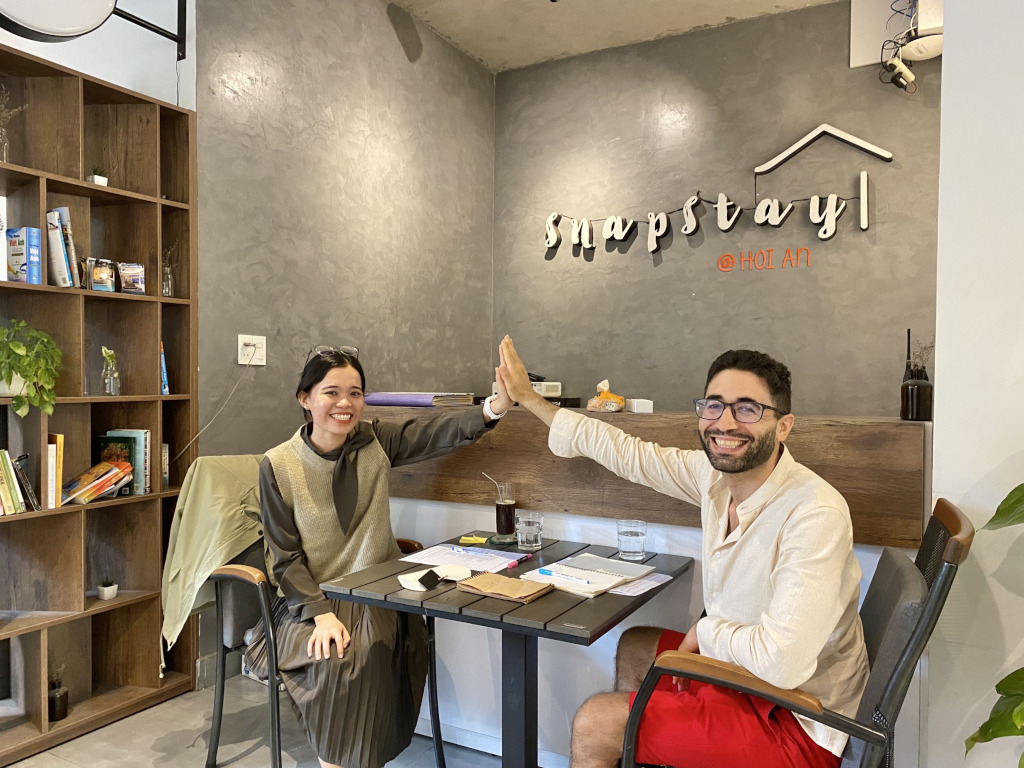
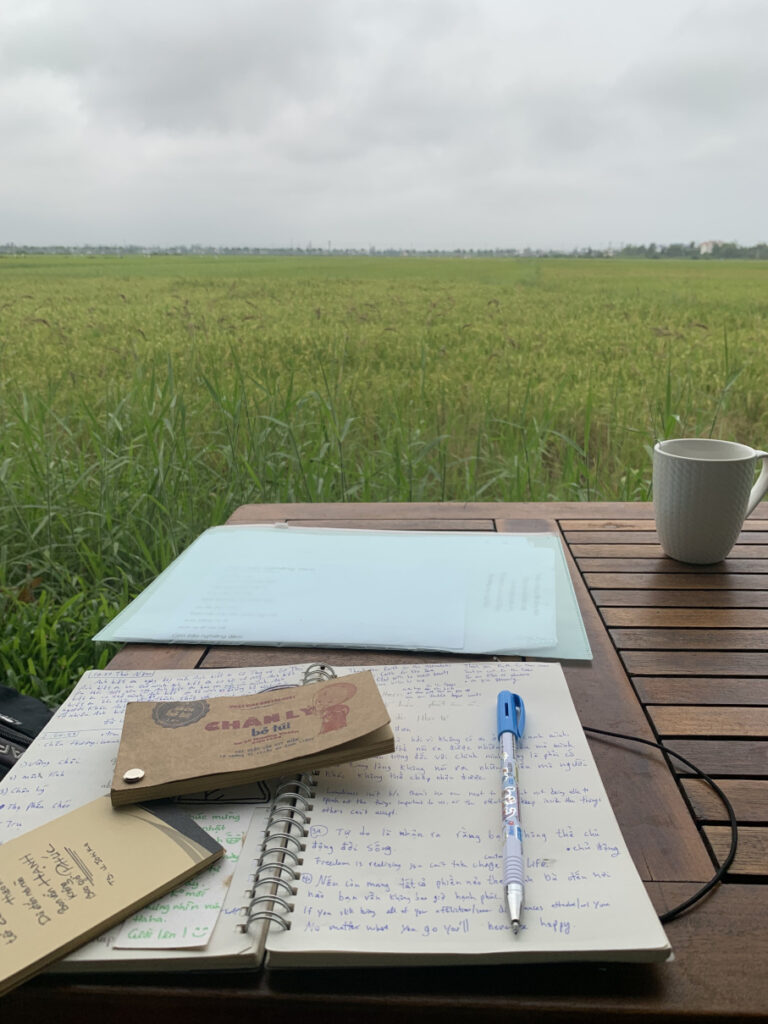
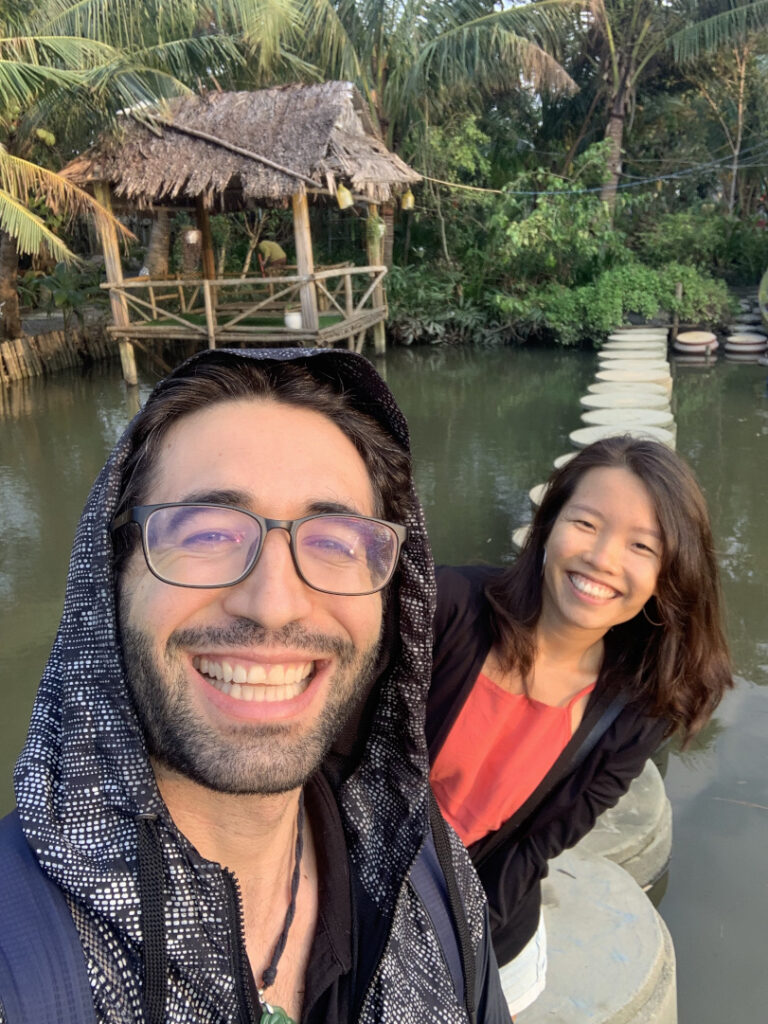

Social